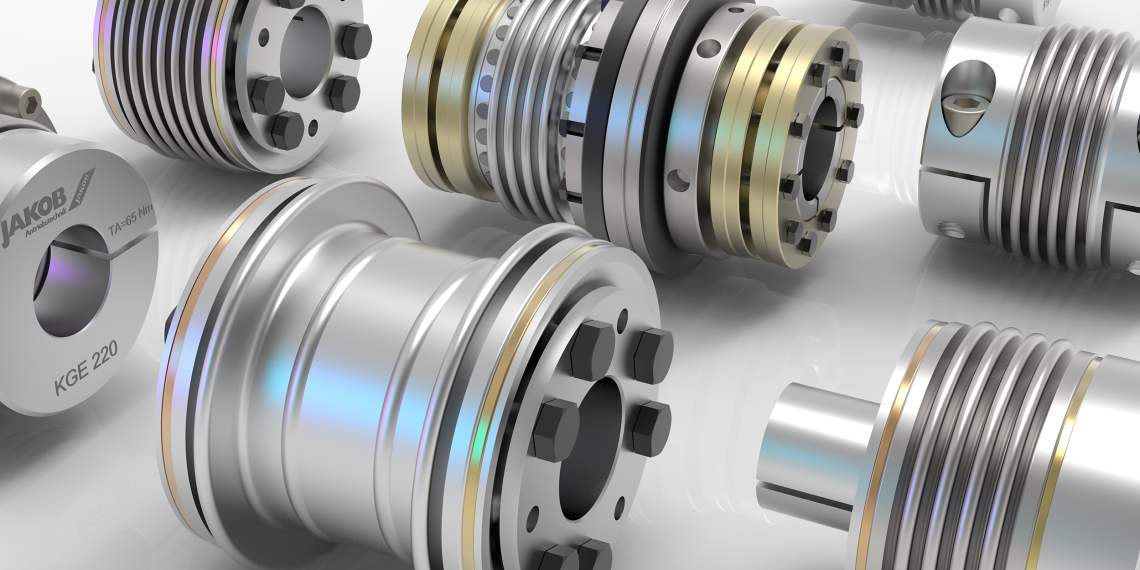In order to find the right clutch for a drive train some factors have to be taken into account. The required torque range, the offset and the ambient temperatures of the clutch are particularly important.
First, the required maximum torque is determined. The clutch should be selected accordingly and not permanently used with overload or in the absolute limit range.
The misalignment goes hand in hand with the possible life span, since the greater the misalignment, the lower the life expectancy of the coupling. Therefore, the most accurate possible alignment is essential. The compensatable lateral offset moves in ranges of about 0.15 — 0.3mm. This also depends strongly on the number of bellows shafts. For example, a 4‑shaft clutch achieves multiple possible higher offset values than a 2‑shaft clutch. Basically, however, the lateral displacement is the most important factor to be taken into consideration after the torque since it has a great effect on the possible force transmission. A high misalignment can also lead to an uneven run which can be reflected in increased wear, larger noise windings or even damage to the complete drive train.
When measuring the maximum operating temperature, it is also important to take into account the possible heat development of the machine and its components during operation. The choice of the material of the couplings is also important in this context. The often used, light aluminum is replaced by stainless steel components at very high maximum temperatures, for example. Once all criteria have been taken into consideration, a suitable coupling can be selected. In case of doubt, the manufacturer is happy to advise you.

















